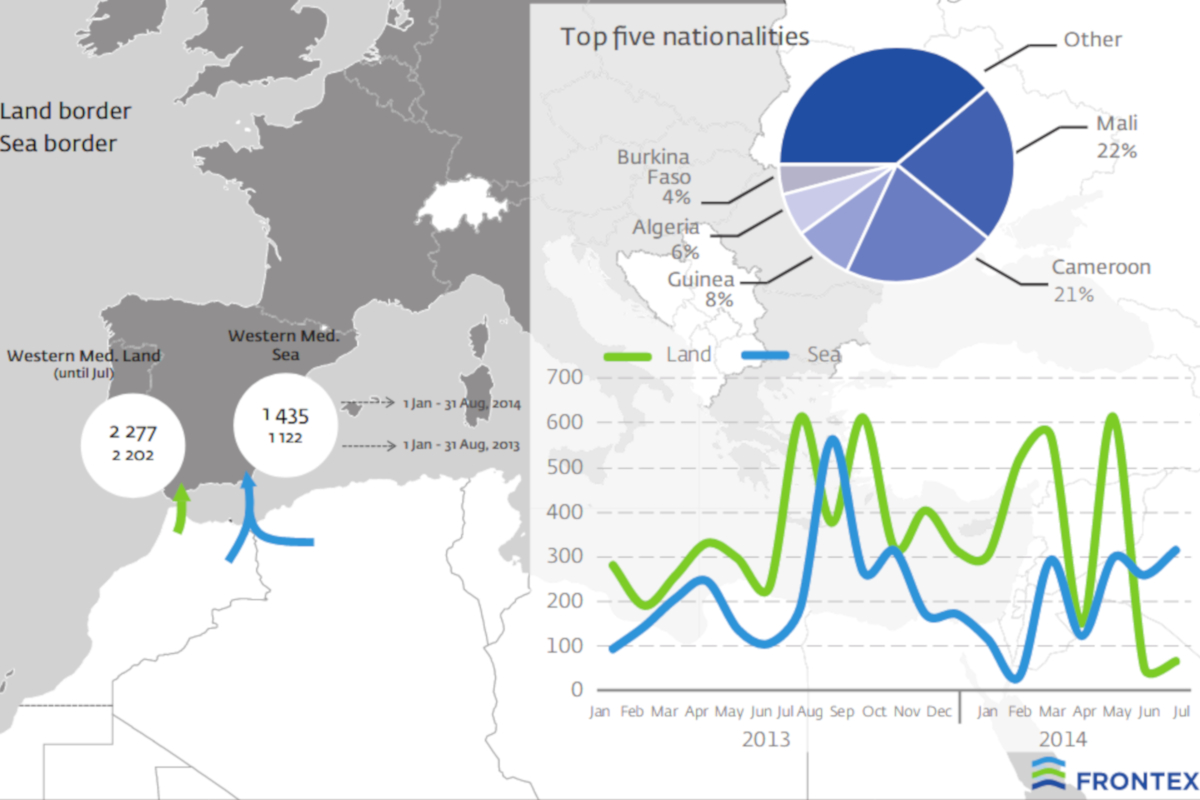EU: “If you build it, the law will come”: bypassing democracy to boost police powers
Topic
Country/Region
08 September 2022
The European Commission is preparing to award a new round of funding to build a system for cross-border searches of “police records”. A legal proposal currently under negotiation would require the establishment of a European Police Records Index System (EPRIS) involving every member and Schengen state and, later on, potentially the UK. The current funding is part of a long-standing attempt to lay the technical foundations for the system before the law is in place, as has happened with previous EU surveillance schemes.
Support our work: become a Friend of Statewatch from as little as £1/€1 per month.

Filling the “information gap”
“Currently, the exchange of police records between Member States’ law enforcement authorities takes place, if at all, on a manual and case-by-case basis,” lamented the European Commission in December last year.
Introducing “the automated exchange of police records… is the only way to remedy the current information gap,” noted a legal proposal that would introduce just such a system.
How convenient, then, that the system has already been under construction for several years and is about to receive more funding from the Commission, while the proposal for the law establishing it has not even been debated in the European Parliament.
Exchanging police records
The December 2021 proposal is known as Prüm II and seeks to facilitate information-sharing between national police forces and Europol by making databases mutually searchable, adding facial image databases to the existing Prüm network of DNA, fingerprint and vehicle registration databases. The UK remains part of the network due to the post-Brexit policing agreement.
The Prüm II proposal also includes the option for states to join a ‘European Police Records Information System’ (EPRIS), with participants agreeing to open up their systems of “police records” – defined as “any information available in the national register or registers recording data of competent authorities, for the prevention, detection and investigation of criminal offences” – for searches by other states’ police forces and EU police agency Europol.
Under the plans, police forces would be able to search the police records of every other participating state for matching information. In the event of a 'hit', they would have to make a request to receive further information from the state holding the record.
A new position paper on Prüm II co-authored by Statewatch and other European Digital Rights members argues that:
"...the necessity and proportionality of the inclusion of police records in Prüm II has not been demonstrated... Police records should only remain in the scope of Prüm II if they are proven to be strictly necessary in addition to ECRIS [the European Criminal Records Information System], about which we are sceptical. If they remain in scope, we recommend, at a minimum, an explicit, narrow definition of 'police record' to ensure that biased information does not prejudice the presumption of innocence of suspects."
The long game
The establishment of EPRIS has been on the agenda of police forces, interior ministries and the Commission’s DG HOME for over a decade, and although it has raised controversy at points it has continued unimpeded under the moniker of ‘Automation of the Data Exchange Process’.
In June 2017 the Commission awarded almost €1.5 million to police forces and interior ministries from Finland, France, Germany, Ireland and Spain to develop the system. Led by the quasi-public consulting company Civipol, the project sought to "optimize information flow for Law enforcement information exchange to enable searches within other MS LEA [law enforcement agencies] and EIS [Europol Information System], in order to facilitate cross border access to information held in national law enforcement databases".
A follow-up project received €941,000 from the Commission in January 2020, with the German federal criminal police (Bundeskriminalamt) this time leading the charge:
“The follow-up project aims to develop and transform EPRIS from a pilot towards a productive system. The main focus will be the development and testing of a roll-out capable system. In addition, the possibility of the automation of certain steps of the exchange of biographic information after a confirmed hit between MS and with Europol will be explored on conceptual level, considering the different prerequisites of the MS involved.”
The Belgian federal police came on board for the 2020 project alongside the previous partners, with Europol involved to “support the project by providing the required services,” such as access to its messaging and information-sharing infrastructure.
Pressing ahead
Now the plan is to further develop the system, although the precise amount of funding to be awarded to the new project has not yet been confirmed.
The Commission’s work programme for the Internal Security Fund for 2021 and 2022 (pdf) notes that the 2020 project “reached a good level of maturity and has developed a working technical solution for the exchanges of police records.”
“The Commission is interested in the testing of a rollout capable system in an operational environment between project participants,” the document notes, before going on to say that:
“A good community around this project was established and should be maintained in order to preserve the specific expertise and technical knowledge acquired. This community ideally will be extended to additional Member States. A close cooperation with Europol must be maintained.”
Statewatch asked the European Commission whether all this was not jumping the gun, given that the legal proposal to establish the EPRIS has not even been discussed by parliamentarians yet.
A spokesperson said:
“The ADEP-EPRIS project is... an initiative of Member States seeking to cooperate further in the exchange of police records, based on their operational needs.
The aim of the ADEP-EPRIS project is not to serve as a pilot for the exchange of police records under the proposal for a Prüm II Regulation. However the legal proposal builds and improves upon the success of the project.
The exchanges of police records under the ADEP-EPRIS project are based on arrangements between Member States wishing to do so. The Prüm II Regulation, once adopted and depending on the outcome of the negotiations between the co-legislators, will provide the legal basis for a future EPRIS architecture (which is not the same as the one of the current ADEP-EPRIS project).” [emphasis added]
It is odd, then, that the impact assessment accompanying the Prüm II proposal seems to say precisely the opposite:
“From 2019, the second iteration of the [ADEP-EPRIS] project further developed the business-related processes and prepared the rollout of the system. The project is currently being tested in Business Acceptance Tests with ‘real’ operational data. The policy option [of introducing the EPRIS via the Prüm II legislation] would extend this project to all Member States and allow for all Member States’ participation in the exchange of police records.”
The Internal Security Fund work programme says something similar, underlining that the new project “must also focus on further developing EPRIS for the potential inclusion of the exchange of police records in the Prüm framework and alignment to its specificities.”
This is not a new story: national air travel surveillance systems were being built using EU funds before a law was passed mandating their interconnection (a law that, incidentally, was recently heavily-criticised by the Court of Justice), and the same happened with the European Border Surveillance System, EUROSUR (under construction from 2008 onwards, legislation proposed in 2011).
Perhaps the inspiration for this sort of democratic bypass is none other than the silver screen. To paraphrase the film Field of Dreams: “If you build it, the law will come.”
Chris Jones, Statewatch Director, comments:
"The story of EPRIS is one that close observers of EU justice and home affairs policy have seen too many times before: interior ministries and police forces advancing their interests behind closed doors, far away from the fora that should be used to host meaningful democratic debates. Instead, elected representatives are left to nitpick over the finer points of a fait accompli disguised as a choice.
Before anything else, MEPs should demand meaningful evidence of the necessity and proportionality of EPRIS and the other intrusive novelties put forward in the Prum II proposal, such as the plan for a European police facial recognition system."
Further reading
- 7 September 2022: European police facial recognition system must be halted, warns new paper
- 16 May 2022: EU: Police to be granted cross-border access to driving licence photos
- 13 April 2022: EU: Policing: France proposes massive EU-wide DNA sweep, automated exchange of facial images
Image: Daniel Mee, CC BY 2.0
Our work is only possible with your support.
Become a Friend of Statewatch from as little as £1/€1 per month.
Spotted an error? If you've spotted a problem with this page, just click once to let us know.

